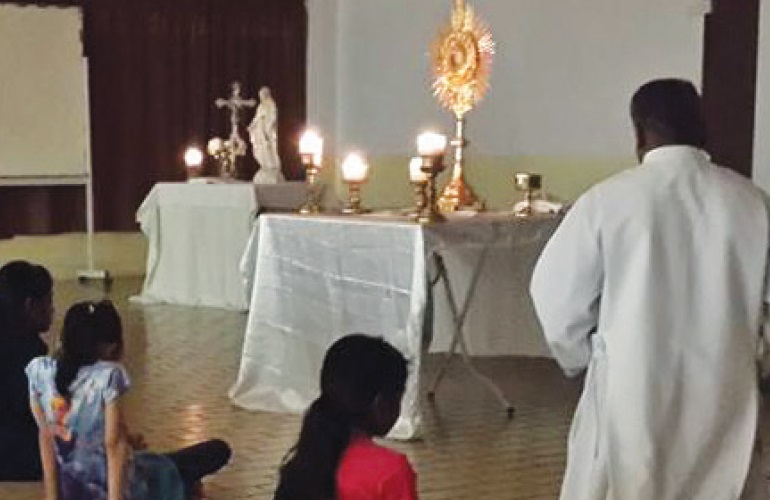Editor’s Note
A survey conducted by The Pew Research Centre (What Americans Know about Religion ? Pew Research Study, July 2019) concluded that many Catholics do not fully understand the fundamental teaching of the Church concerning the real presence of our Lord in the Eucharist.
Jun 09, 2023

By Patricia Pereira
A survey conducted by The Pew Research Centre (What Americans Know about Religion ? Pew Research Study, July 2019) concluded that many Catholics do not fully understand the fundamental teaching of the Church concerning the real presence of our Lord in the Eucharist.
According to this research, “Just one-third of US Catholics (31 per cent) say they believe that ‘during Mass, the bread and wine actually become the body and blood of Jesus.’ While, 69 per cent of self-described Catholics believe “the bread and wine used in Communion ‘are merely symbols of the body and blood of Jesus Christ.’”
The study’s findings sparked much debate in the Church, including among the bishops of the United States, resulting in the launching of a three-year Eucharistic Revival aimed at seeking to reawaken Catholics’ understanding of the Eucharistic and offer a path toward healing. The revival will culminate in a National Eucharistic Congress in Indianapolis in 2024.
I wonder what the percentage would be like if we conducted a similar research here amongst our Malaysian Catholics. Do we know and understand enough about the Eucharist to be able to explain it to non-Christians? (see pg 13, Corpus Christi — Musings on the Holy Eucharist).
From the very beginning of Christian history, holy men and women have reflected on Christ’s presence in the Eucharist and have taught that the sacred transformation that occurs in the Eucharistic liturgy is a sign and a cause of the transformation that should occur in the lives of all those who receive this great sacrament of Christ’s love.
Pope Francis, in his apostolic exhortation Evangelii Gaudium (The Joy of the Gospel), has continued this tradition and forcefully reminded us that the Eucharist “is not a prize for the perfect, but a powerful medicine and nourishment for the weak.” The words of the Holy Father resonate well with the Eucharistic revival in the US, which coincided with a sharp rise in anxiety, depression and other mental health issues among large segments of the nation’s population. This then urged Catholics to ask, “how we, as a Church, can better support one another and live out this call of caring for one another as one body?” (see back page, Eucharistic revival – a call to accompany those with mental illness).
We live in a time of confusion and controversy over what it means to be a Catholic. Many diverse and dissonant voices tell us that our faith is old-fashioned and out of touch. Church teaching is often portrayed as repressive or intolerant.
The younger generation these days tend to regard religious teaching and practice as optional. At worst, those who take their faith seriously are regarded as a threat to ideologies that define the status quo.
In spite of years of controversies and changing practices, the foundational teachings of our Church have not changed.
We may come to understand things differently (in a new light), or we can mature in our ability to express what we believe, but the teaching we have received from the Apostles remains constant and unchanging even as new questions and controversies arise to challenge our most cherished beliefs and traditions.
Let’s cut through all the confusion and controversy to the heart of the matter. The Eucharist is a mystery that we may never fully comprehend, but we Catholics are invited (and challenged) to accept that Christ is really present in this great sacrament.
As we prepare to celebrate the solemn feast of Christ’s body and blood this weekend, let’s reflect prayerfully on its meaning for us and for our world. Christ is present to us in the most intimate way possible. He becomes one with us so that we can become one with our sisters and brothers everywhere.







Total Comments:0